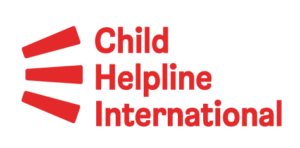“Children should be seen, heard and believed.” That’s what it says on the business card of the assistant director of media and information of the Sri Lankan Child Protection Authority, and that’s what they all truly believe and fight for at this child helpline.
Not only does the Authority have a hotline that is open 24/7 to report cases of child abuse and other issues, they have counsellors on hand to support the children and young people who contact them, police departments to report on cases, and legal departments for advice. This latter department also fights for laws protecting children in the first place.
As a volunteer working for the national child helpline in my own country, it was was an honour to witness the everyday work of the Sri Lankan child helpline with my own eyes. Back in the Netherlands I have been working for the local child helpline for over two years now. Recently, I decided to go travelling around South-East Asia for several months. Of course, this would mean gaining some wonderful experience during my adventures, but it also meant having to put aside my work at the child helpline. As I didn’t want to say goodbye to that part of my life altogether, I got in touch with Child Helpline International and learned that there are child helplines in almost every country around the world. They come in all different shapes and sizes, but they all share one vision: that every child has a voice that should be heard. It’s a vision that I share too, and I wanted to see how it was being carried out in the different countries I was about to visit.
And so to my first stop: Sri Lanka.
The National Child Protection Authority in Sri Lanka – as the name already suggests – is a governmental organization, and this immediately marks the first difference to the child helpline I’m familiar with in the Netherlands – De Kindertelefoon, while it is subsidized by the Dutch government, is a private, non-government foundation. This made the office and the people working at the Sri Lankan child helpline feel a lot more “corporate” than what I am used to back home. Nonetheless, I received an extremely warm welcome followed by an extensive tour and explanation of the child helpline and its work.
During this tour I spotted some other differences between the two organizations. For example in the Netherlands there are many different organizations all specialized in different fields of expertise. The child helpline in the Netherlands is as an easy, approachable starting point for all children to get in touch with, to talk about any topic they want, positive or negative. And, wherever and whenever needed and requested by the child, we can always redirect them to more specialized organizations. In Sri Lanka, these different specializations can all be found together in one place: at the National Authority. In addition, the people fulfilling these roles are all employees, whereas in the Netherlands the child helpline works with many volunteers; which leads to the Dutch child helpline only being open from 11am to 9pm everyday, whereas the Sri Lankan line operates 24/7.

While I was struck by a lot of differences at first glance, once I actually stepped into the call center, I felt at ease straight away as everything felt so familiar. Even though the challenges that Dutch and Sri Lankan children have to face on a daily basis might differ on the surface, underneath that surface many children are going through very similar struggles and painful situations. Topics such as physical and sexual abuse, family issues and (cyber)bullying are – unfortunately – not uncommon in either country. Answering phone calls from children who are victims of these terrible abuses can be hard to deal with at times, so it was very comforting exchanging stories and coping strategies with the people I met in Sri Lanka. Talking about these cases ones again stressed the importance of child helplines existing in every country around the world, and hopefully they will continue to do so for a very long time to come.
…So that, one day, all children are seen and heard and believed.
Nadia Swijtink
Volunteer, De Kindertelefoon
Currently on tour!

